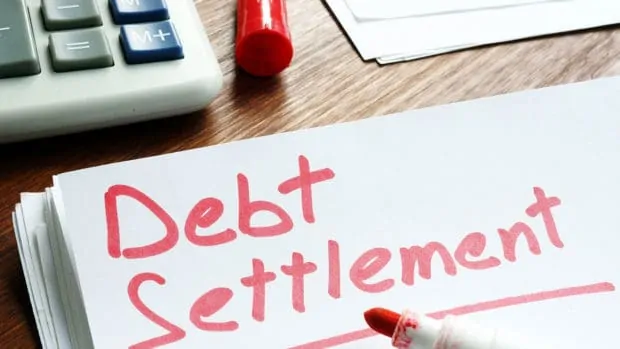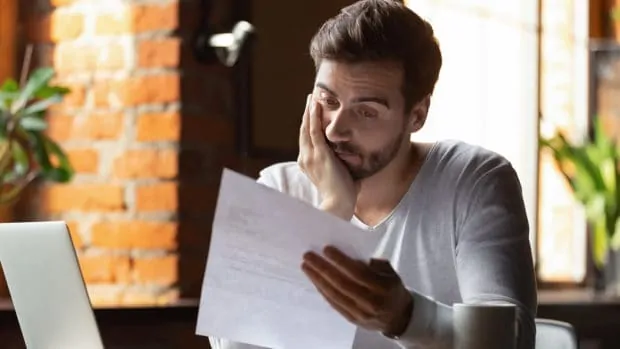Question: I had a DUI 12 years ago, for which I had to pay restitution. My lawyer advised me to ignore the ruling since no one from the other insurance company appeared in court. I never heard from them. I’m trying to get my license reinstated now, only to find out the insurance company told the court I defaulted on paying them back. I found an agent who told me to where to send a payment and that they would contact me within a week. I sent one hundred dollars with my information and several questions. I asked them to tell the court I was making a good faith effort to pay them. I’ve sent a hundred dollars every month for six months now. I still haven’t heard from them and I still can’t get my license back. What are my options? Do I still owe this?
Mandi Woodruff, executive editor at MagnifyMoney, responds…
That sounds frustrating, especially since it seems like you’ve been trying to do the right thing all along. Whether your attorney was correct about you not being responsible for paying reparations at the time they were ordered is difficult to determine based on the limited information we have, but it seems there may have been a miscommunication or misunderstanding somewhere along the way.
You noted that you’ve been sending payments to an address, but it’s unclear to whom those payments are being sent or what type of an agent told you to send them there. Also, have the checks been cashed?
If you have received no receipt or other proof that those payments have been received and that they’re being applied to this debt, I would urge you to do more investigating before sending further payments. Also, I would suggest that any further payments are made with certified funds, which provide a record of your payment for both you and the bank. Because checks provide your routing number and account number, another party may be able to use that information and try to extract the amount of the entire debt from your account. The same goes for electronic and debit card payments. If your accounts don’t have enough funds to cover the amount, this can land you in a messy financial situation with potential overdraft fees and other headaches.
You didn’t note any impact to your credit score, but I’m curious if it has been affected by this outstanding debt as well. While courts don’t report missed payments directly to the credit bureaus, they are public record, which credit bureaus generally consider. I would urge you to check your credit score to determine if it has been dragged down by this debt, as it can affect everything from your ability to get a car loan to how much interest you’ll pay on a loan.
Unpaid Tickets or Fines
Also, are you certain it’s these reparations that are preventing you from reinstating your license? The issue could also be other unpaid tickets or fines. If you haven’t already, contact the Washington State Department of Licensing. Online you can click on the section, “Learn how to reinstate your driver’s license” (Note: You’ll have to set up an account with their License eXpress (LX) program if it’s your first time using the system), or you can email them at [email protected] or call 360-902-3900.
If it is indeed these past DUI reparations causing the problem, then you’ll want to contact the court that issued them in the first place. While other types of types of debt are subject to statute of limitations laws, Washington restitution law states that offenders “shall remain under the court’s jurisdiction until the obligation is completely satisfied, regardless of the statutory maximum for the crime.” So, if you’re still on record for not fulfilling your reparations, you definitely want to get that cleared up with the court. In some cases defaulting on court-ordered fees may be considered contempt of court.
The Interest Rate of Restitution
Legal financial obligations, such as restitution, have a 12% annual interest rate in Washington, and in some cases an annual collection fee is issued as well. So, if your restitution is 12 years overdue, the amount you owe may have grown significantly. Don’t panic though. Even if the current amount seems staggering, there are ways you can manage such an unexpected burden and pay it down, including the following:
- Use emergency funds: If you have an emergency savings account, this may be a time to consider tapping into it, particularly if you need your driver’s license to get to a job and have no other means to pay the debt. Just don’t forget to replenish those funds as soon as possible.
- Personal loan: Depending on your credit and other financial circumstances, you may qualify for a low-interest personal loan with fixed amounts that will allow you to pay off this debt and get your driver’s license back. Just be sure to carefully examine all the terms of the loan so you know exactly what you’re responsible for paying back and how much it will cost you over time.
- Budget: Carefully examine your spending to see if there are areas in which you can cut costs to free up extra funds that can be funneled toward this debt. Can you cancel a gym membership you rarely use? Can you cook at home instead of eating out a couple times a month? In most cases, carefully examining your budget can turn up a good deal of unnecessary spending. There are a host of great apps and online tools to help too.
- Bring in more funds: Be it a side hustle in addition to your regular job or selling items that you no longer need, look for ways you can earn additional money to put toward this debt.
Also, the court may make allowances if it’s found that you weren’t wilfully not making the payments, and may work out a payment plan. In any case, it sounds like the help of an attorney — either the one who represented you in the first place or a new lawyer — may be useful in sorting this all out and putting it behind you.
The bottom line when it comes to any unpaid debt is to clear it up as quickly as possible. Beyond getting your driver’s license reinstated, unpaid debt can have a devastating effect on your financial and emotional well-being, so make sure you get to the bottom of this as soon as possible.
Good luck!








